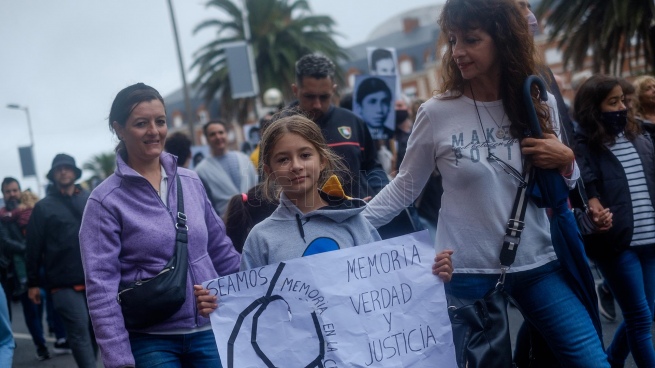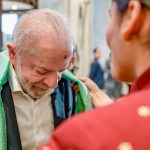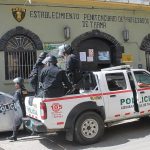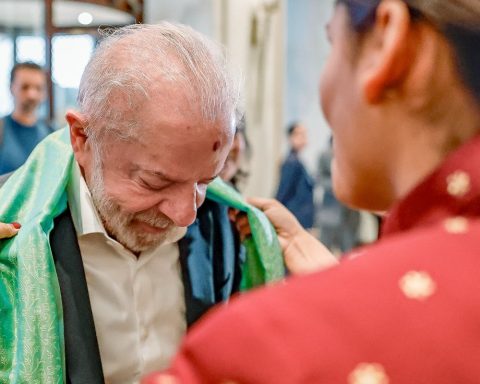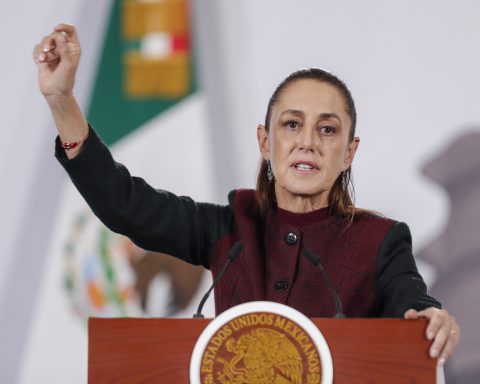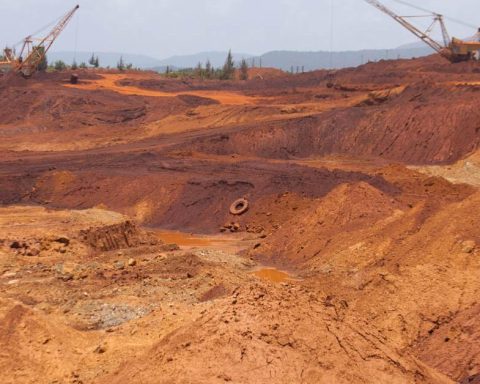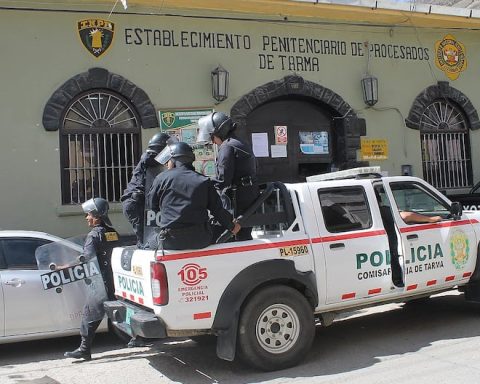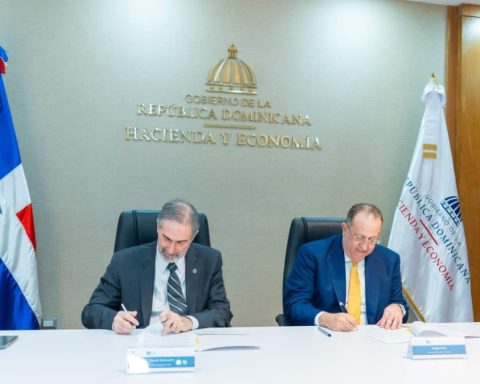Various mobilizations took place this Thursday in the main cities of the country, despite the rain and strong winds that affected several provinces, in commemoration of the National Day of Memory for Truth and Justice, in repudiation of the civic coup military perpetrated 46 years ago.
In that framework, the governors agreed to pronounce themselves “never again” and to revalue dialogue and reflection on the past “to build a future” in defense of democracy that prevents “those events from happening again.”
Civil and political organizations, groups of relatives of the disappeared and human rights defenders led marches and events throughout the country where they shared a nationally agreed document that warns, among other issues, that “46 years after the last genocidal coup, we continue to claiming to know the Truth” and also advocated prosecuting “the complicit economic power”.
Buenos Aires province
One of the first marches of the day took place around noon in Mar del Plata where the storm that fell on the city during the early hours of the morning and left many neighborhoods without power did not dampen the spirit of the protesters who, after two years without mobilizing due to the pandemic, took to the streets again to vindicate the demand for Memory, Truth and Justice.
In the city of Bahía Blanca, meanwhile, the mobilization had to be suspended due to the strong wind and rain storm that also caused trees to fall and power outages.
Santa Fe
in Rosario, Referents of human rights organizations planted trees today in the Bosque de la Memoria, in tribute to the local Mothers of the Plaza 25 de Mayo, whose last member Adela “Lila” Panelo died in 2021 at the age of 97. “This yearly exercise of planting memory is made up of all the struggles that join the threads for today’s present,” he said. the mayor of Rosario, Pablo Javkin. In the afternoon and despite the cold and the gale that affected the city, thousands of people mobilized towards the National Monument to the Flag from San Martín Square and the speakers pointed out that “we have come a long way in Human Rights. We were able to achieve 269 convictions throughout the country and there are still almost 300 more trials to go. “Throughout all these years we have recovered 130 grandchildren, but we still have to find almost 300. We continue to fight for the trial and punishment not only of political and military officials, but we will not rest until we judge the civil, business accomplices and judicial”, they added.

In the city of Santa Fe A crowd gathered in the Plaza 25 de Mayo, in front of the Provincial Government House, after marching several blocks and after singing the national anthem, the speakers demanded “Never Again to dictatorships and neoliberal policies.” The Mother of Plaza de Mayo, Otilia Acuña, 102, participated in the march, a symbol of the popular sectors and the struggle of the human rights organizations of Santa Fe.
jump
In Salta, hundreds of people walked the streets of the center today and participated in an act at the Portal de la Memoria, where human rights organizations read a joint document, in which they declared that there would never be more State terrorism.
“We think it is very important to remember, especially for young people who do not know what happened and so that they have social sensitivity, let’s achieve a fairer, more egalitarian society, as the disappeared comrades wanted, those who fought,” he told Télam Nora Leonard, from the Lucrecia Barquet Association.
saint Louis
In San Luis, the APDH carried out an act in front of the monolith that remembers the name of the local disappeared during the military dictatorship in Pringles Square, where Lilian Videla, a founding member of the institution, told Télam that “it is a black day in history Argentina and it should not be forgotten that the military coup had the complicity of civilians and ecclesiastics”.
Black river
In Río Negro there were acts and mobilizations in San Carlos de Bariloche, where demonstrators once again painted the white handkerchiefs of the mothers on the promenade in front of the Civic Center, in General Roca and Viedma, where in the midst of a heavy drizzle there was a mobilization around to the Plaza San Martín convened by the Association of Relatives and Victims of State Terrorism, where a unique document was read with which, among other issues, it was claimed that Justice for the disappeared persons.
In the case of Bariloche, more than two thousand people marched through the city until they reached the emblematic Civic Center, where different groups repainted the White Scarves that were installed in 1996.

Santa Cruz
In Santa Cruz, the commemoration had two simultaneous acts, given that the provincial Human Rights Secretariat organized a ceremony in the Paseo de la Memoria, while political parties and leftist groups gathered in the historic place of San Martín Avenue at 600 of this capital.
The official ceremony was led by Governor Alicia Kirchner who, after assisting a flag student who fainted, stated: “We are interested in being and not in having” and stressed that the young people of the seventies “fought for a better life, for our rights and this is not simply solved with a monument or remember them”.
“The experience must permeate our lives,” he assured and asked: “Let us all build memory, truth and justice for the future of all Santa Cruz.”
Chubut
In the Chubut town of El Hoyo, the act was held on the sidewalk of the Rights Protection Service building, soon to be inaugurated, where the authorities pointed it out as “a symbol of struggle for the Andean people” and Mayor Pol Huisman, an acknowledgment of the struggles for Never Again.

mendoza
in Mendoza, Governor Rodolfo Suarez asked today “to remember so that our country never again suffers the scourges of a dictatorship”, while in the city of Godoy Cruz, Mayor Tadeo García Zalazar presented the conversion of the seventh police station into a space for culture, memory and tolerance and stressed that “Days like today serve to commemorate, so that justice is demanded and truth prevails.”
Jujuy
In Jujuy, “we continue to demand the full validity of human rights” was the slogan of acts, marches and other activities that took place in Memory sites in different locations.
“We must not forget, so that it never happens again,” Inés Peña, from Mothers and Relatives of the Detained-Disappeared, told Télam, and assured that today the leadership is still fighting “looking for a more democratic country.”
In the afternoon and under a cloudy sky, there was a march led by human rights organizations from the Parque de la Memoria in the south of the city.
Formosa
in Formosan, Governor Gildo Insfran He maintained on tiwtter that “a people without memory is a people without a future” and recalled that this is a “date of deep reflection on the tragedy that losing democracy and respect for life means”, while human rights organizations concentrated this afternoon in the Plaza San Martín to march to the “Corner of Memory” in the central streets of Moreno and 25 de Mayo.
Between rivers
The governor of Entre Ríos, Gustavo Bordet, asked today to “embrace memory, truth and justice” in order to “build a future of democracy, peace and dignity”, when commemorating the 46th anniversary of the coup, while the Minister of Government and Justice from Entre Ríos, Rosario Romero, explained that on this date “remembering reaffirms the values of democracy in Argentina”
San Juan
from San Juan, Governor Sergio Unac He stressed that the civic-military dictatorship caused “a tragedy” in Argentine society, by leading an act in the old provincial Legislature and remarked that today “commemorates the recent history that we could avoid and we did not. History is what it is and not the one that one pretends it to be. We lived after the coup d’état an attack against men and women who were fighting to live in democracy”.

Neuquen
in Neuquen, Governor Omar Gutierrez He highlighted the importance “of revaluing the past to build the future and the future” in the commemorative act that took place this morning during the marking of the former clandestine detention center “La Escuelita”.
“Many times we say that we know where we are going because we know where we come from,” said the governor, stressing the importance of “rescue, reassess the past because that is the only way to build future and future.”

Santiago del Estero
The governor of Santiago del Estero, Gerardo Zamorapointed out in a ceremony at the Campo Contreras school that “it is a date to reflect, analyze, understand what has happened after that civic military coup of March 24, 1976, which generated one of the most tragic, bloody and sad pages of our history. We must be aware so that these events never happen again”.
The Pampa
in the Pampas, Governor Sergio Ziliotto, recalled in an act at the Arturo Illia school that “those of us who were born into political life with the return to democracy, experienced the coup of 1976 in full adolescence and have internalized that need for the permanent exercise of memory, we have as an emblem the testimony of the historical review of what happened to us” and assured that “memory has to do with facts and here we have to take charge with institutional responsibility but also because of ideological belonging and we have to work accordingly”.

The Rioja
In La Rioja, Governor Ricardo Quintela today led the act in the town of Chelcos and vindicated the figure of Evelina Rosa Ávila, a detained and disappeared person, pointing out that “she was a fighter for generating favorable conditions for social justice to be settle in Argentina, with a more just, sovereign and free Homeland”.
